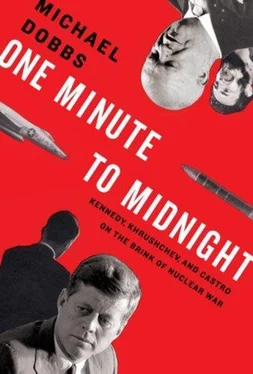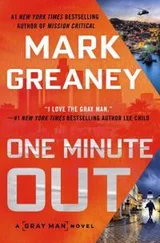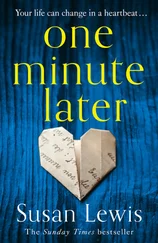In yet another twist to history, this huge military buildup was one of the principal reasons for the Soviet Union’s ultimate demise. Even a fabulously rich country, with huge natural resources, could not sustain the burden of ever-increasing military budgets. The free world led by the United States eventually won a victory over the totalitarian world of Soviet communism—but it came about in a different manner than many people expected.
The missile crisis marked a turning point in the debate over whether a nuclear war was winnable. Prior to October 1962, an influential group of generals headed by Curtis LeMay had favored a first strike against the Soviet Union. After the missile crisis, even the generals had to rethink the notion of Cold War victory. Killing all the Communists was obviously impossible without millions of Americans being killed as well. The United States and the Soviet Union would never again become involved in a direct military confrontation of the scale and intensity of the Cuban conflict. There would be many proxy wars—in Vietnam, the Middle East, Africa, and elsewhere—but no wars or even near wars pitting American troops directly against Soviet troops.
The impossibility of military victory had the salutary effect of shifting the superpower competition to other areas, in most of which America enjoyed a comparative advantage. Countries that successfully resisted the military might of the United States—Vietnam is the most obvious example—ended up adopting free market economic systems and opening up to the outside world. Cuba is a notable exception to this trend. In his own mind, Castro won a great victory over the yanqui enemy merely by remaining in power for so long. In reality, he transformed the most prosperous island in the Caribbean into a defeated, impoverished country stuck in a fifties time warp. You only have to travel to Havana from Miami to understand who are the victors and who are the vanquished.
The most enduring lesson of the Cuban missile crisis is that, in a world with nuclear weapons, a classic military victory is an illusion. Communism was not defeated militarily; it was defeated economically, culturally, and ideologically. Khrushchev’s successors were unable to provide their own people with a basic level of material prosperity and spiritual fulfillment. They lost the war of ideas. In the end, as I have argued in Down with Big Brother: The Fall of the Soviet Empire, communism defeated itself.
From today’s perspective, the key moment of the missile crisis is not the largely mythical “eyeball to eyeball” confrontation of October 24. It turns out that the two great adversaries—Kennedy and Khrushchev—were both looking for a way out. They each had the power to blow up the world, but they were both horrified by the thought of nuclear Armageddon. They were rational, intelligent, decent men separated by an ocean of misunderstanding, fear, and ideological suspicion. Despite everything that divided them, they had a sneaking sympathy for each other, an idea expressed most poignantly by Jackie Kennedy in a private, handwritten letter she sent to Khrushchev following her husband’s assassination:
You and he were adversaries, but you were allied in a determination that the world should not be blown up. The danger which troubled my husband was that war might be started not so much by the big men as by the little ones. While big men know the need for self-control and restraint, little men are sometimes moved more by fear and pride.
The real danger of war in October 1962, we can now see, came not from the “big men” but from the “little men.” It was symbolized by the “sonofabitch moment” on Black Saturday when events seemed to be spiraling out of control. To use Rumsfeld’s expression, “stuff” was happening all over the place. Nobody could predict where the next incident would occur or where it would all lead. JFK’s great virtue, and the essential difference between him and George W. Bush, was that he had an instinctive appreciation for the chaotic forces of history. His experience as a junior Navy officer in World War II had taught him to expect screwups. He knew that the commander in chief cannot possibly control everything on the battlefield, no matter how much information is flowing into the White House.
The fact that the two opposing sides were armed with nuclear weapons served as an additional constraint on Kennedy. The nightmare haunting JFK was that a small incident, such as an exchange of fire between a U.S. warship and a Soviet submarine, would cause the deaths of tens of millions of people. It was sobering to think that a single Soviet nuclear warhead landing on an American city could result in more than half a million casualties, double the number of casualties of the Civil War.
Bismarck defined political intuition as the ability to hear, before anybody else, “the distant hoofbeats of history.” Kennedy was surely listening acutely to the hoofbeats as the debate raged around him in the Cabinet Room on Black Saturday over the damage that could be done to NATO by giving up the Jupiter missiles in Turkey. His aides thought in political-military terms; he thought in historical terms. He knew that he had to call Khrushchev’s bluff, or the balance of power between Washington and Moscow would be permanently altered. But he also understood, better than anyone else in the room, that future generations would never forgive him if he failed to do everything he could to prevent a nuclear war.
The Cuban missile crisis demonstrates the sometimes pivotal role of personality in politics. Character counts. Had someone else been president in October 1962, the outcome could have been very different. Bobby Kennedy would later note that the dozen senior advisers who took part in the ExComm debates were all “bright and energetic…amongst the most able people in the country.” Nevertheless, in RFK’s view, “if any of half a dozen of them were president, the world would have been very likely plunged in a catastrophic war.” He based that conclusion on the knowledge that nearly half the ExComm had favored bombing the missile sites on Cuba, a step that probably would have led to an American invasion of the island.
Even with the benefit of hindsight, it is impossible to know what would have happened had JFK followed the advice of the hawks. It is conceivable that Khrushchev would have swallowed the humiliation. It is possible that he would have lashed out in Berlin or elsewhere. It is also conceivable that Soviet commanders on Cuba would have used tactical nuclear weapons to defend themselves, whatever their instructions from Moscow. A breakdown in military communications would have effectively devolved control over such weapons to the captains and majors who commanded each individual battery. We have seen how it would have taken just a few minutes to fire a nuclear-tipped cruise missile into the Guantanamo Naval Base. Had such an attack occurred, Kennedy would have been under enormous pressure to order a nuclear response. It would have been difficult to confine a nuclear war to Cuba.
There was much that Kennedy and his advisers did not know about Soviet military capabilities on Cuba. They exaggerated some threats and underestimated others. There were many intelligence failures, along with some noteworthy successes. After playing down the threat, the CIA discovered the construction of the missile sites in the knick of time, and predicted fairly accurately when each site would become operational. But the presence of tactical nuclear weapons on the island would remain a closely held Kremlin secret for more than three decades. The CIA believed there were between six thousand and eight thousand Soviet “advisers” on the island. In fact, there were more than forty thousand Soviet soldiers on Cuba, including at least ten thousand highly trained combat troops.
Читать дальше












